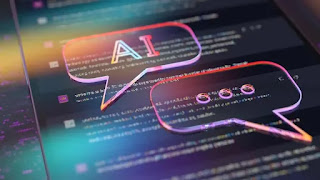Artificial Intelligence (AI) is changing the landscape of education by enhancing learning and teaching methods. It brings learning opportunities. Streamlines administrative duties, ultimately improving efficiency, accessibility and student engagement. AI has enormous potential in education, offering exciting innovations for students and educators alike. As technology advances, its applications in educational settings are becoming more sophisticated and impactful.
This mix of system and user prompts is designed to improve the assistant's ability to transform the text into a more human-like version, while also staying true to the original content's purpose and accuracy. Tone of Voice: Casual and informative, with a natural flow.
In this discussion we delve into how AI's reshaping education and ponder on what lies in the future.
Personalized Education
- Tailored Learning Platforms: These platforms analyze a students progress. Customize the difficulty and content type in time. For example if a student excels in an area the platform presents advanced material. Conversely if a student encounters difficulties it provides resources and assistance.
- Individualized Feedback: AI systems offer feedback, on assignments and assessments aiding students in understanding their errors and improving away. This instant feedback loop enhances the learning process effectively.
Intelligent Tutoring Systems
- Provide step-by-step guidance: ITS can guide students through difficult problems by providing hints and explanations based on students’ current understanding.
- Progress Monitoring: This system tracks student progress over time, identifies areas of strength and weakness, and adjusts instruction accordingly.
Improved accessibility
- Language comprehension and integration: Tools such as speech, words, words and speech make it easier for learners with visual and auditory impairments to engage in learning.
- Real-time translation: AI can translate spoken or written text in real time, break down language barriers, and make learning materials accessible to non-native speakers.
Administrative Efficiency
- Automated Grading: AI can grade more than one-desire assessments, essays, and even more complicated assignments. This reduces the workload on teachers and ensures regular and unbiased grading.
- Predictive Analytics: By studying scholar information, AI can predict which college students are prone to falling in the back of and endorse interventions. This proactive technique allows in addressing troubles earlier than they turn out to be sizeable problems.
Interesting teaching experience
- Games: AI can make learning fun and motivate students by incorporating game-like elements into educational materials.
- Virtual Reality (VR) and Augmented Reality (AR): These technologies are powered by AI, creating immersive learning environments where students can explore and interact with subject matter in ways not possible in traditional classrooms.
Teacher Support
- Professional Development: AI can spot areas where teachers might benefit from some extra training and suggest top-notch professional development resources to keep them ahead of the curve.
- Lesson Planning: AI can assist teachers in crafting awesome lesson plans by giving them nifty suggestions for materials and activities that perfectly align with the curriculum and cater to the diverse needs of their students.
Virtual Classrooms and Remote Learning
- AI-Powered Learning Management Systems (LMS): These modern LMS platforms are harnessing the power of AI to offer personalized course recommendations, track student progress, and give educators valuable insights into student engagement and performance.
- Interactive Virtual Classrooms: Thanks to AI, virtual classrooms have become more interactive than ever. Features like real-time language translation, personalized learning paths, and automated breakout rooms for group activities are making online learning a breeze.
AI in Curriculum Development
- Data-Driven Insights: By analyzing massive amounts of educational data, AI helps educators identify trends and gaps in the current curriculum. This valuable information allows them to create more relevant and effective learning modules.
- Dynamic Content Creation: AI is a pro at generating content tailored to the specific needs of a course or student demographic. This means the material is always up-to-date and captivating.
Emotional and Social Learning
- Emotion Recognition: With the help of AI tools, educators can analyze facial expressions, voice tones, and other cues to understand student emotions. This insight enables timely interventions and ensures students' emotional well-being.
- Social Skills Development: AI-driven applications and games are providing students with opportunities to develop their social skills. By simulating real-life scenarios and providing feedback on their interactions, AI is paving the way for well-rounded learners.
The future of AI in education is looking bright! There are some exciting possibilities on the horizon, including:
- Smarter Teaching Assistants: As AI continues to advance, tutoring systems will become even more sophisticated in delivering personalized instruction. Imagine having a virtual assistant that knows exactly how to help you learn best!
- Lifelong Learning Made Easier: AI will play a crucial role in supporting adults who want to keep learning throughout their lives. It will provide them with opportunities to acquire new skills and adapt to evolving job markets. So, no matter where you are in your career, AI will be there to help you stay ahead of the game.
- Ethical Considerations: As AI becomes more integrated into education, it's important to address ethical concerns. We need to ensure that data privacy is protected, AI algorithms are free from biases, and everyone has equal access to AI technologies. It's all about making sure that AI is used for the benefit of all learners.


